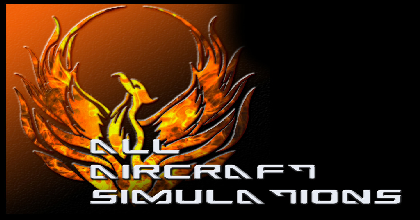17.04.2010, 18:21
Folks,
I was wondering if any of you know of a living WWII pilot who flew escort to bombers.
You may not know one personally but if an airshow is scheduled near you I'm sure at least one WWII veteran will be there to either sign books or just talk.
My interest in this is because me and some friends were discussing how fighters flew escort to bomber groups.
Did they "weave" in and out along-side, fly high/rear/to the sides/front etc..
I find nothing in the books I have read and the only google results are:
![[Image: georgepreddy.jpg]](http://img6.imageshack.us/img6/6857/georgepreddy.jpg)
That's all the description says - just "it's a good idea to range". I'd like some specifics.
Since I've read many books about bombers (I'm a fan of them) I know they went near full throttle returning from a bombing mission to get the heck back home.
Some specs on the B-17 for example:
Performance
Maximum speed: 287 mph (249 kn, 462 km/h)
Cruise speed: 182 mph (158 kn, 293 km/h)
Range: 2,000 mi (1,738 nmi, 3,219 km) with 2,700 kg (6,000 lb) bombload
Service ceiling: 35,600 ft (10,850 m)
Rate of climb: 900 ft/min (4.6 m/s)
I would presume that the fighter's airspeed would at least match that of the bombers, that is, high speed.
I have read many theories and speculation from "sim-pilots" but I'd like to hear it from an actual WWII pilot.
So if you have a chance, please ask them what flying formations did they use, what were their airspeeds, etc..
Or if you know of a way I can contact one, please PM me.
Thank you.
ps - Please, no personal opinions unless you are a WWII vet.
I was wondering if any of you know of a living WWII pilot who flew escort to bombers.
You may not know one personally but if an airshow is scheduled near you I'm sure at least one WWII veteran will be there to either sign books or just talk.
My interest in this is because me and some friends were discussing how fighters flew escort to bomber groups.
Did they "weave" in and out along-side, fly high/rear/to the sides/front etc..
I find nothing in the books I have read and the only google results are:
![[Image: georgepreddy.jpg]](http://img6.imageshack.us/img6/6857/georgepreddy.jpg)
That's all the description says - just "it's a good idea to range". I'd like some specifics.
Since I've read many books about bombers (I'm a fan of them) I know they went near full throttle returning from a bombing mission to get the heck back home.
Some specs on the B-17 for example:
Performance
Maximum speed: 287 mph (249 kn, 462 km/h)
Cruise speed: 182 mph (158 kn, 293 km/h)
Range: 2,000 mi (1,738 nmi, 3,219 km) with 2,700 kg (6,000 lb) bombload
Service ceiling: 35,600 ft (10,850 m)
Rate of climb: 900 ft/min (4.6 m/s)
I would presume that the fighter's airspeed would at least match that of the bombers, that is, high speed.
I have read many theories and speculation from "sim-pilots" but I'd like to hear it from an actual WWII pilot.
So if you have a chance, please ask them what flying formations did they use, what were their airspeeds, etc..
Or if you know of a way I can contact one, please PM me.
Thank you.
ps - Please, no personal opinions unless you are a WWII vet.
